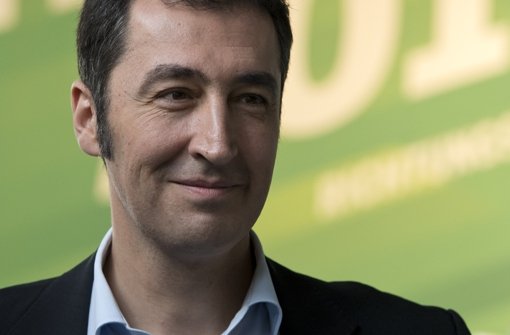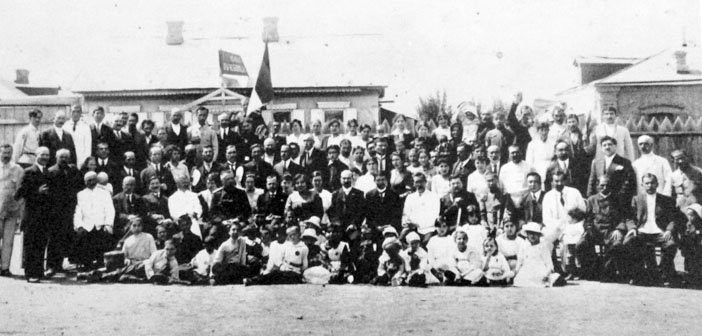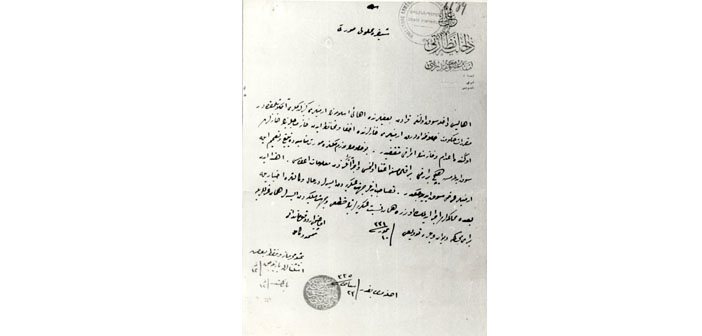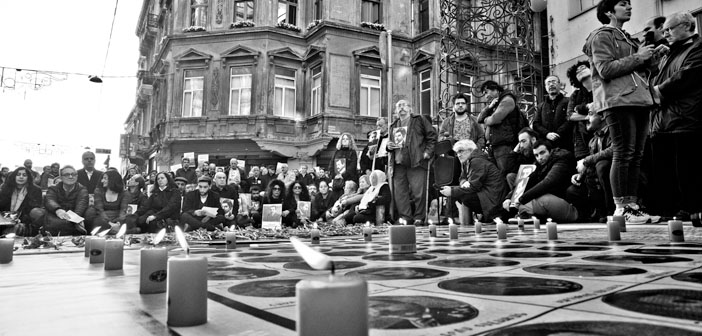Germany Parliament (Bundestag) is discussing the Armenian Genocide motion.
Today, Bundestag is discussing the massacre of Armenians in Ottoman Empire during the World War I. Green Party demands the massacre is defined as genocide. It is stated that the coalition parties Christian Democratic Union of Germany (CDU) and Social Democratic Party of Germany (SPD) won't be supporting the motion openly in order not jeopardize the collaboration with Turkey concerning the refugees.
Turkey obstacle
This issue was also discussed last year and President of the Bundestag Norbert Lambert said, "What happened in Ottoman Empire for all the world to see during World War I was genocide. And this wasn't the last genocide of 20th century."
We spoke to Green Party co-chair Cem Özdemir about the genocide motion.
The motion of Green Party is not new; it was also discussed on April 24, 2015, which marked the 100th anniversary of the Armenian Genocide. At that time, we thought that the motion will be passed. Why did this process lengthen out?
Last year, on April, we held a historical session in the parliament. We discussed the necessity of defining what was done to Armenians and Christian minorities during Ottoman rule as genocide and we stated that Germany should take the historical responsibility as an ally of Ottoman Empire at that time. There are several reasons why I consider that session important. One day before that session, President Gauck referred what happened as genocide; during the session, President of the Bundestag and all the MPs speaking on behalf of the political parties defined the events as genocide. These developments made us think that we are on a point of no return and we felt hopeful. On the other hand, German government adopted an attitude focused on not offending Turkish government and this attitude overcame the will of the parliament. Because of that, we couldn't have passed the motion and it was sent to the Committee on Foreign Affairs. However, the content of the discussions enabled us to stand by our struggle and encouraged us to work for organizing a meeting in Committee on Foreign Affairs where experts can be heard or preparing a common declaration with the signature of all political parties. Unfortunately, all these efforts and hopes collapsed now. There is no planned meeting or common declaration. The only reason is the new partnership with Turkey which is based on interests. This is a shame. Sufferings of people is sacrificed for temporary political agenda.
What was the reaction of other political parties to this motion? Did their support or negative reaction change during this process?
In fact, all political parties represented in the Bundestag and each MP agreed on the fact that this was genocide and Germany should take its historical responsibility. However, when it comes to the relations between governments, things get complicated. The support hasn't changed since then, but some issues are more pressing now. Despite that, we managed to write a common declaration by working with my colleagues from CDU and SPD. This declaration had “genocide” in its title; so, it was doing justice to the heart of the issue. In that declaration, we also demanded Germany take the historical responsibility. However, we couldn't have overcome the pressure of prominent leaders of the parties in the parliament. Their only concern was not to offend Turkey in a time when Germany needs Turkey so bad about the refugees. They didn't want to bring this issue to the parliament's agenda and get away with the 100th anniversary without any trouble.
For us, this is not a political issue; it is a matter of conscience. So, since our priority is to bring this issue to the parliament no matter what, we will present that declaration on which everyone was agreed before as the motion of Alliance '90/The Greens.
In German press, it is claimed that this motion was discussed during the negotiations between Merkel and Erdoğan and it was brushed under the rug upon the request of Turkish government.
I don't know for sure whether there was such a request, but it is not surprising. Probably, it is not a coincidence that the political parties stopped supporting this motion, when the negotiations with Turkey started. Merkel meets with Erdoğan more than she meets with her partners in power. No one can make me believe that this motion didn't become an issue of negotiation or oppression during those meetings. And this is not the only issue that is brushed under the rug by Merkel. State violence in the southeast of Turkey, oppression of media and what is done to the academics... While Turkey become more and more authoritarian, the mutual love between Erdoğan and Merkel grows each day and I cannot understand it.
There are also negotiations about the status of the refugees. What can you say about this?
Turkey is a country which welcomed many refugees and we appreciate that. And it is natural to meet with Turkey for discussing these matters. Turkey, as the most important transit country, should be supported morally and financially. However, the destiny, past and sufferings of Armenian people should'tn be sacrificed for this. Bundestag's agenda is not Erdoğan's or Turkish government's to determine. I understand the difficulty of Merkel's position, but as someone who knows what realpolitik means, such an important issue cannot be left to the will of an authoritarian leader. It is our debt of conscience and gratitude to the grandchildren of genocide victims to acknowledge the genocide as it is. We cannot sacrifice it for solving another tragedy that is happening in the Mediterranean Sea.





